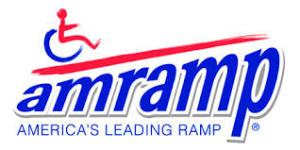 We enjoy reading Jason Daley’s Franchisors posts on the website Entrepreneur.com, and wish to share, in particular, “How I Grew My Wheelchair Ramp Company Into a Franchise,” about the experience of franchisor Julian Gordon.
We enjoy reading Jason Daley’s Franchisors posts on the website Entrepreneur.com, and wish to share, in particular, “How I Grew My Wheelchair Ramp Company Into a Franchise,” about the experience of franchisor Julian Gordon.
In his Q&A with Entrepreneur.com, Gordon shares how after twenty years running a metal fabrication shop, he became disheartened with the boom-or-bust cycle of the construction business.
“My business was all construction-based, and we sold to contractors. So I had this shop full of guys who make things, ” he tells Daley. “But construction is very cyclical. Sometimes I couldn’t hire enough guys; there were so many orders. Other times the phone didn’t ring. ”
Given the strong presence Sintel Systems has in the retail, restaurant and service industries’ point of sale marketplace, we share these entrepreneurial stories with our customers and franchise hopefuls looking for key insights and opportunities in order to help them make the best decisions from the very beginning.
Looking around for alternative sales, Gordon initially applied his metalworking know-how to creating wheelchair ramps for the elderly and disabled. By 1998, his all-steel modular ramp system was in more than 200 U.S. medical supply stores.
But distributing with retailers was as frustrating as construction had been. “For two years I was stupid and tried to distribute through retailers,” he says. “It was very ineffective. They wouldn’t focus on my product, and they don’t have warehouses. No one coming out of the hospital wants to wait a week while I ship a ramp across the country.”
Gordon turned to franchising in 2002 when he sold the first Amramp franchise. Today the company has 50 units across the U.S. and another in Canada.
Under the new arrangement, the wheelchair ramps are kept by franchisees in small warehouses, and are available to be installed as soon as a patient leaves the hospital. Amramp franchisees also sell an expanded line of other accessibility products, such as stair lifts and portable showers.
In the Q&A, Gordon tells Daley that the market for wheelchair ramps is indeed big enough to support a franchise system, with an estimated 70 million Americans on Medicare by 2023. Another positive factor for Amramp is that our medical system doesn’t want people in hospitals; if they can get you home with a lower-cost health-based program, they’re going to do it. “So all the insurance companies are looking at low cost ramps to facilitate people being taken care of in their homes,” says Gordon.
About 70% of Amramp’s franchisees subcontract out ramp and equipment installation and work most out of their home and rent a small warehouse to store the ramps.
Gordon says he looks for empathy in hiring franchisees. “You can’t fake that,” he tells Daley. “They need to be able to relate to their customers, to people who have elderly parents living in their house or that they’re taking care of.” Approximately one-third of Amramp’s franchisees have a medical background.
Gordon tells Daley, “When I interview people, unless on that first or second interview they say something about doing something valuable for other people’s lives, I don’t go any further with them.”
Amramp is still selling franchises, but there are only twenty remaining markets, areas in the U.S. that have 1 million people within a two-hour drive. “That’s the minimum population we need to support a franchise,” says Gordon.
Finding the right franchisee takes time. Gordon takes his time in finding the right franchisee. Gordon spent five years finding the right person in Miami, someone whose first language was not English, and who fit Amramp’s franchisee profile.
Gordon tells Daley he love what we’re doing, the dynamic of the people, and the sincere appreciation of what we do. “That’s the reason we’re succeeding,” he says.
“Most franchises have a turnover rate of about 10 percent each year, [but] we’ve only turned over 10 franchises in 10 years. Many people eventually bring their children into the business, they love it so much,” Gordon tells Daley.
Read Jason Daley’s full Entrepreneur.com Q&A with Julian Gordon here.
For more insights into the franchise-seeking mindset, check out our related posts, A Franchise Personality Fit For A King, The Five Points Of A Franchise Star, A Veteran, A Franchise Player, In Franchising, Women Find Empowerment, and Now’s A Good Time for Good Timing.
Sintel is the only full-service, direct-to-user point of sale provider — no resellers, no middleman. From software development to franchise incubator to ongoing support, part of Sintel’s commitment to our customers and industry is to share information on how to achieve success.
Yes, your timing is perfect but before you make your franchise move, consider calling Sintel Systems for a free phone consultation to help weigh and understand your options. We serve as a franchise incubator for clients across the retail, restaurant and service industries, forming lasting partnerships with our clients that you simply can’t get from a reseller.
If you are interested in learning more about Sintel’s point of sale (POS) systems and how our knowledge and support can impact your future success, call us for a complimentary phone consultation.
Sintel Systems is the only direct to end user full-service provider of tailored Point of Sale systems across retail, restaurant and service industries, including frozen yogurt shops, pizzerias, sushi restaurants, cafés and retail stores.
As a single source for business solutions, our experienced, knowledgeable team negotiates the complex POS landscape for you to enable you to find the right POS system for your business and budget. Hardware – Software – Support
Questions or Comments: Contact us 855-POS-SALES www.SintelSystems.com


 Español
Español Français
Français Italiano
Italiano Português
Português Deutsch
Deutsch العربية
العربية 中文
中文 Русский
Русский 한국어
한국어 日本語
日本語